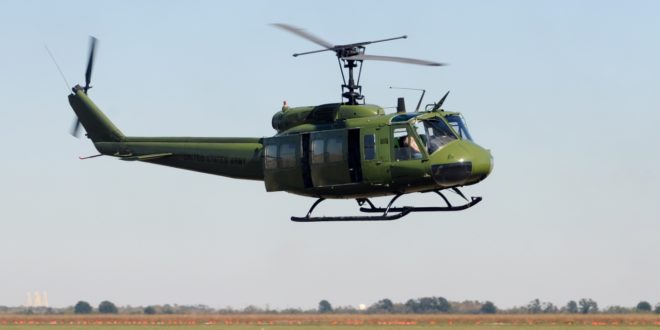This regiment consisted of armored personnel carriers (APCs), tanks, mobile artillery, and so on. These were sent into the jungles and hills of South Vietnam looking for an enemy to destroy. I was a medic, without weapons, in C-Troop, and my job was to treat all of my soldiers for wounds, diseases, injuries, and other problems. I was the only Adventist in C-Troop where the soldiers consisted of Christians, Atheists, and all kinds of beliefs. Most of the time we were busy looking for the enemy. Social living was limited, and a medic spent much of his time checking on his men.
I grew up in an eastern suburb next door to a college campus, and I was raised reading books. Jesse was raised in the deep South. He was a hardcore boy from the country. You had to be tough in that setting, and he was a fighter who stood his ground. When he got drafted, it was the same way. If you wanted to pick on a boy from the South, he’d stand right there and fight you if you wanted.
When he was sent as a gunner to Vietnam, he stood up to his superior sergeant, and he threatened to kill the sergeant if he had to fight him. The new sergeant just didn’t know what needed to be done. In this case, Jesse was right, and the sergeant apologized the next day because the sergeant was new. But Jesse knew what needed to be done to protect everyone if there was to be a fight with the enemy. Jesse and I were not the same.
When I first started in the jungle, Jesse and I were in the same platoon, just not in the same APC. And if I could talk to him, it would probably be something like, “Do you have any injuries?” We could go all day and never speak a word to each other. Jesse had a filthy mouth and didn’t tolerate some people, but we fit together without any problems. This was good because I didn’t carry a weapon and many of the troopers worried about me. I wouldn’t have been the first medic to have been afraid or had run away from a fight.
Likewise, I was very different from the others. I didn’t smoke, I didn’t drink, I didn’t use drugs, I didn’t curse. I read my Bible. From the perspective of many of the tough soldiers, I was a very strange person. Despite this, Jesse and I got along fine. Jesse was a tough gunner who knew what needed to be done, and he was definitely a very good man to have around.
Vietnam Battle
A few years ago, he reminded me of a battle that we were in that I had forgotten. In the battle, he had been wounded in his neck. I couldn’t find any specific bullets or other types of wounds. In the jungle, we only had an aid bag with dressings, IVs, and a few simple instruments to treat someone with. There had to be an immediate diagnosis and treatment.
You had to decide quickly whether they had to go to the hospital now versus waiting and watching the wounded during the fight, while you helped other wounded. And we needed to keep as many soldiers as possible to help in the fights that might happen then or later. I couldn’t feel or find anything ugly with Jesse, so I put a dressing on his wound and he went back to work. He didn’t need to be dusted off and taken to a hospital. He healed fine, I thought.
I never got a chance to see Jesse or talk to him until about 10 years ago at an 11th Calvary Reunion where we swapped our stories. If you’re a combat medic, your job is to care for your buddies. In a firefight you will endanger your life getting to a wounded man, treating him. and moving him away from the fight. In one of my first fights, an APC hit a mine and almost everyone on it was wounded. One of the rules of armored vehicles is that you never go out the way you came in.
The enemy would place mines on the trails or around that whole area. On this fight, I grabbed my aid bag, jumped down, and ran up the trail to the APC to treat my buddies. It took only a couple of seconds of running to know that I couldn’t wait to treat them. I ignored possible mines and I kept running. This, sadly, happened several times but I never thought about it again. They needed me. Jesse once said, “You’re the bravest man I ever knew.” I really was just doing my job. But I told him that he could follow me down the trail to the APC if he wanted, but I recommended that he walk in my footsteps. We both laughed. But it shows how close we became to each other.
After the war, GIs were known as baby killers. We could get spat on, abused, or attacked physically. Most GIs never said a word about what they did in the war. They didn’t even mention that they had been in a war. I didn’t talk about my duty much for at least 30 years after the war. But Jesse and I stayed in touch after the reunion. He told me a few years ago that he had developed some pain and swelling in his neck. He went to his doctor, and an X-ray showed that he had some shrapnel in his neck that was moving closer to his spine. The surgeon removed it fairly easily. Fortunately, there was no permanent damage. However, I didn’t feel very good about my diagnostic skills.
But Jesse told me another story that made me feel better. One day, as he was telling his new story, he slugged me between my eyes. In a combat zone, your mind is frequently very limited to what is immediately around you. You moved to different areas every day and started at sunrise and stopped at sundown. You couldn’t talk at night because the enemy might hear you. Many lesser things got forgotten.
I didn’t know that Jesse hadn’t been a Christian, no matter how he acted. But he had remembered the times that I had talked to him about God. I assure you that I have no memory of ever talking to him about God while in the jungles of Vietnam. But between my beginning to tell him about God, and his brother talking to him after he got home from Vietnam, Jesse became a Christian. I didn’t know that he had changed, but he has lived his life for Jesus ever since. He retired as a trucker, and right now he’s 100% disabled as a veteran due to PTSD.
The memories of the Vietnam war never go away. But Jesse still reaches out to others. He has taught me well that one can never know when a small kindness or sharing the love of God will touch someone’s heart. After the war, how many people did Jesse touch because I was able to touch his heart in the jungle? I didn’t have any brochures or fancy Sabbath School papers in the jungle, but you don’t have to have them. The love of God and His kindness will answer any need you have, anywhere and anytime.
If you liked this, you might also like Letters From A Soldier
Barry Beaven writes from New Mexico.
© 2002 - 2024, AnswersForMe.org. All rights reserved. Click here for content usage information. Answers for Me Support & encouragement for every-day life
Answers for Me Support & encouragement for every-day life



